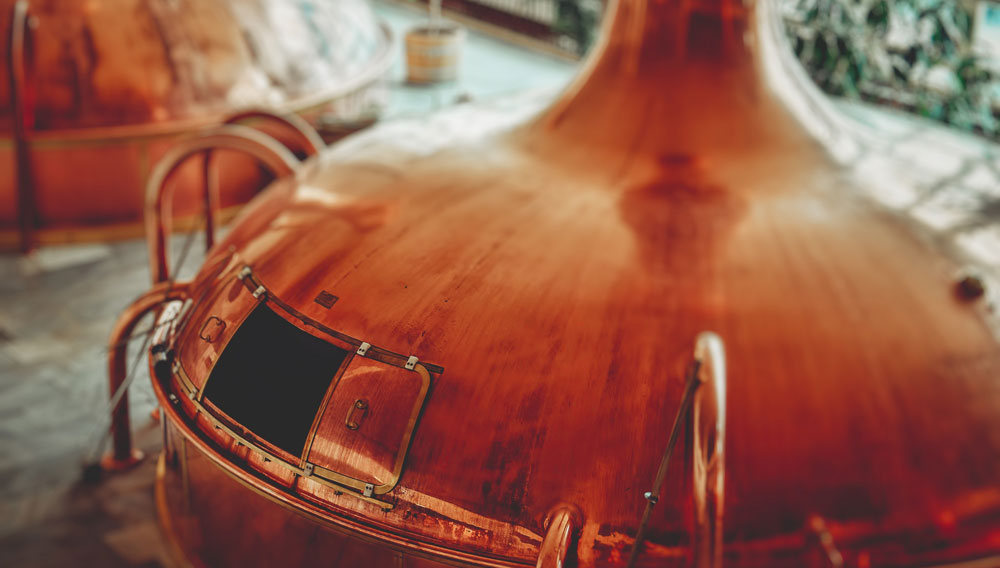Sample collection in the brewhouse
Very often analysis results from samples taken during brewhouse inspections for subsequent testing, for monitoring wort quality and other brewhouse procedures or for calculating overall brewhouse yield (OBY) are inaccurate or false, simply because the samples were not collected or handled in the proper manner.
As an initiative of the Weihenstephan Research Center for Brewing and Food Quality, a study-group was organized, known as “Harmonizing the OBY“. In December 2008, a meeting was held at the Research Center. It was attended by well-established brewery manufacturers and consulting companies as well as by scientists from the TUM-Weihenstephan, in order to discuss topics critical to brewhouse sample collection for the purpose of reaching a unified approach on this issue.
In the course of the discussion about calculating brewhouse yield it was determined that an essential prerequisite for this calculation would be to guarantee that samples are collected properly. The following factors must be taken into consideration:
a) the type of sample;
b) the location or stage in the process where the sample was collected;
c) the time at which the sample was collected;
d) the duration of sample collection;
e) the amount of the sample (dependent upon the analyses).
A wort sample volume of one-half liter is not sufficient to perform a complete wort analysis, if one bears in mind the volumes required for each individual analysis.
Moreover, it frequently occurs that the samples are not sterile. The properties of wort and spent grains are altered quite dramatically by microbiological activity. For instance wort bacteria infecting a wort sample can raise the free DMS concentration to over 1000 µg / l.
Bacteria in spent grain samples can severely skew analysis results. The available residual extract will be lower and can yield results as low as 0 percent, causing the soluble extract to increase.
The sterility of the samples also plays an important role. Wort samples should only be collected while they are hot. The vessel for collecting the sample must be filled to the top and then sealed. Immediately afterward, the temperature should be lowered to below 25 °C, in order to avoid any further reactions in the sample.
Due to settling, excessively large milled malt samples do not remain uniform throughout their entire volume. The total sample should weigh between 80 and 120 g, so that it can be sieved in its entirety and inhomogeneity does not result.
For day-to-day routine wort monitoring, hot samples are taken immediately upstream from the plate and frame heat exchanger at the midpoint of the cooling process. This is ultimately the wort into which the yeast will later be pitched. Samples of the cast-out wort serve to monitor the boiling process within the framework of a quality management program and/or to determine the amount of evaporation during boiling.
In order to dispel the myths surrounding these topics, the Weihenstephan Research Center has created a plan for sample collection, which specifies exact methods for collecting samples of water, malt, milled malt, wort, spent grains as well as for determining suspended solids and trub. Through implementation of this plan, conditions necessary to allow for a more accurate evaluation of the quality of brewhouse operations will be established. Further information will follow regarding the topic of OBY.
Both the title page and the sample page entitled “Malt Samples” purvey the general idea behind the organization of these instructions and important information regarding sample collection.
The complete manual on sample collection methods is available in German or in English through the Research Center at Weihenstephan.
Address: Forschungszentrum Weihenstephan
für Brau- und Lebensmittelqualität
Alte Akademie 3
D – 85354 FREISING
Tel.: +49 8161-713333
Fax: +49 8161-714181
e-mail:
A Spanish version is also planned.
The price in Germany is 30 € + sales tax+ shipping. For international orders, the price is 30 € + shipping.
Authors
Klaus Litzenburger
Source
BRAUWELT International 2009


